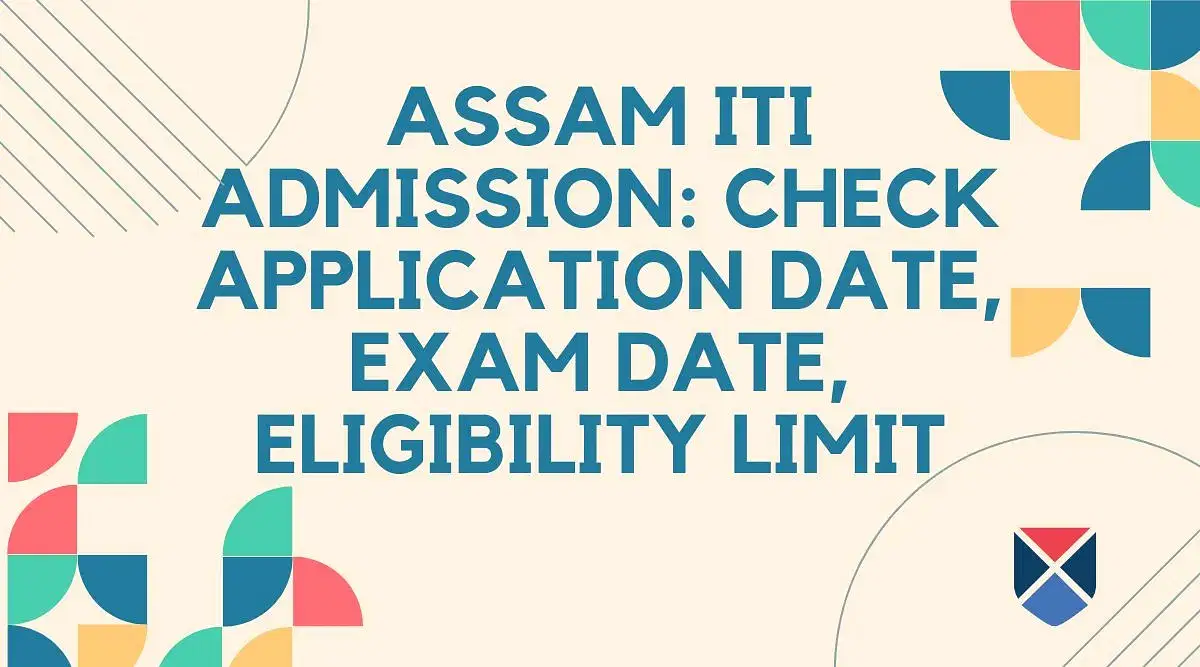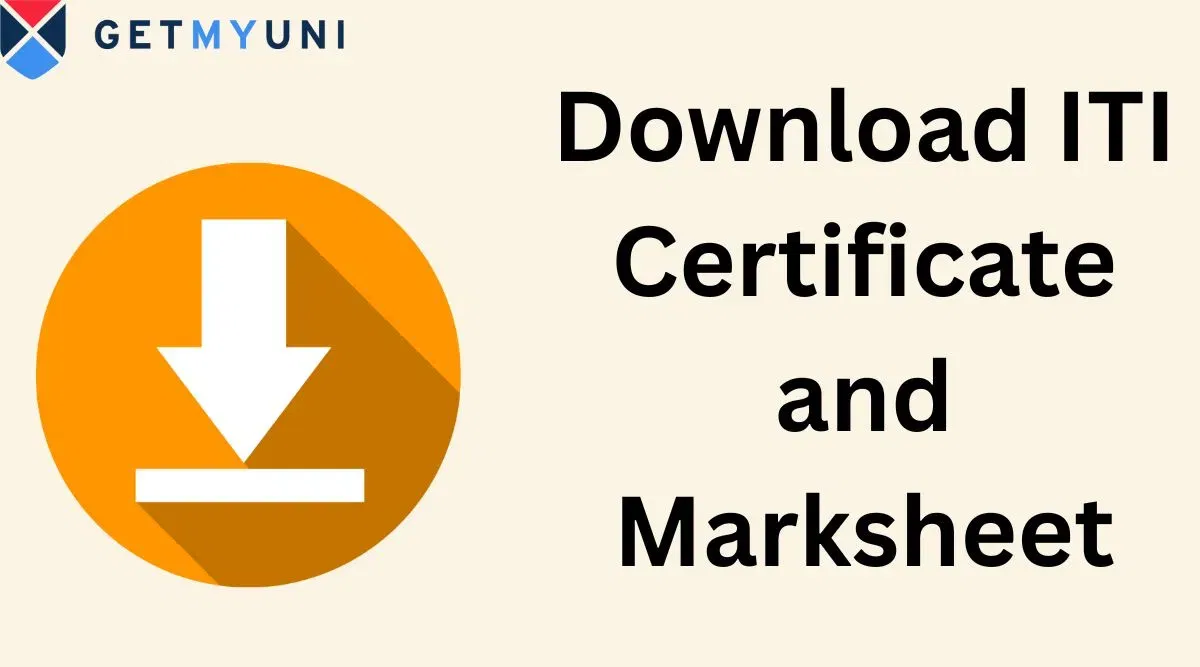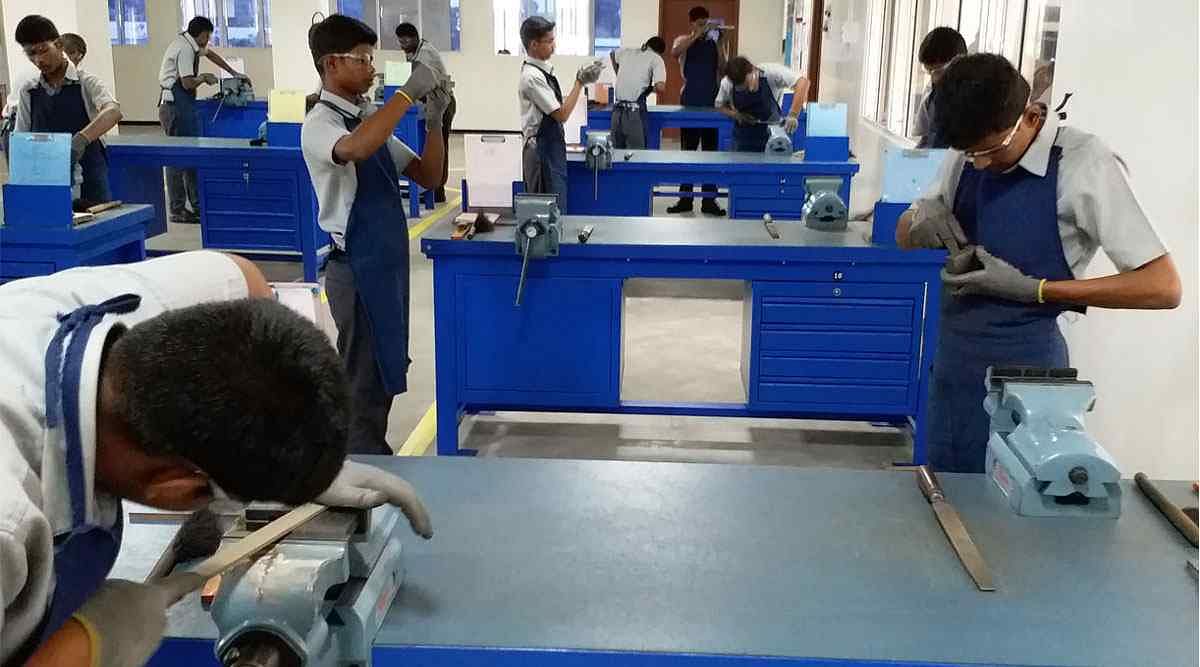ITI Electrician course is a specialisation course for tradesmen. The skills taught in the course are making transmission lines, electrical wiring in buildings, stationary machines, and other related skills.
Table of Contents
ITI Electrician course is a vocational training course for electrical tradesmanship. The training teaches skills in electrical wiring, transmission lines, stationary machines and other relevant work. The IT Electrician course is a two-year vocational course.
ITI stands for Industrial Training Institute, which is a government-led institute set up by the Directorate General of Employment and Training, Government of India. The institute is present in various states and offers vocational training in electrician and other trades. Candidates who are willing to enrol in the course can find the details about the course, including the eligibility criteria, admission process, fees structure, course duration, in the upcoming sections.
ITI Electrician Course: An Overview
The ITI Electrician course is approved by the National Council for Vocational Training (NCVT) and is categorised under the Craftsman Training Scheme. The areas in which the electrician course focuses includes those of maintenance, buildings, construction, etc.
This vocational course finds application in various industries and is one of the most important courses under ITI. An overview of the ITI Electrician course has been given in the table below:
| Particulars | Details |
| Eligibility Criteria | The candidate must have passed the 10th board examination. |
| Age Limit | Lower Age Limit - 14 years Upper Age Limit - 40 years |
| Admission Process | Direct or Merit-based Admission |
| Course Duration | 2 years |
| Subjects | 1. Employability Skills2. Electrical Theory3. Engineering Drawing4. Workshop calculation and Science5. Electrical Practical |
| Course Fees | 1500 – 3000 INR (Government Institute) 5000 – 25000 INR (Private Institute) |
| Certificate | SCVT NCVT |
| Career Options | Electrician Maintainer, Electrician, Power Electrician, Lineman, Wireman, Electrical Supervisor, Technical Helper, Service Technician, Foreman, etc. |
| Government Sector Jobs for ITI Electrician | Railways, NTPC, SAIL, Power Plants, HPCL, GAIL, Municipal Corporation, ONGC, etc. |
| Options for Higher Study After ITI Electrician Course | Polytechnic Diploma, B.Tech, & CTI/CITS |
Also Check: Diploma Vs Degree: Which Is Better? What Is the Difference?
ITI Electrician Course Details
This certificate course in Electrician tradesmanship is offered in all the ITIs across India. Those who are interested in taking up this course must know the details about the course. All the details of the course including the eligibility criteria, admission procedures, course duration and fees, and other related information are provided below.
Eligibility Criteria
The candidates are required to satisfy the eligibility criteria with regard to educational qualification and age limit, in order to be eligible for the ITI Electrician course. The eligibility criteria to get enrolled in the course are:
- The candidate must have passed the 10th board examination.
- The lower age limit to get admission to the course is 14 years and the upper age limit is 40 years.
Admission
The admission process for the Electrician course under ITI is direct. The candidates are selected on merit basis. This is to say that the candidates are selected on the basis of their marks in the previous examination.
Fees
There are both government and private institutions offering the ITI electrician course. The fees for the course in the government institution are far less as compared to the private institutes. While there is relaxation for the reserved categories, the fees structure for the general category has been mentioned below:
- Government Institutions - 1500 INR - 3000 INR
- Private institutes - 5000 INR - 25000 INR
Course Duration
The ITI Electrician course is a 2-year course which is divided into 4 semesters.
ITI Certificate
A certificate is offered at the end of the 2-year course. The certificate is offered by State Council for Vocational Training (SCVT) and NCVT.
Also Check: Polytechnic Vs ITI: Which Course Is Better?
ITI Electrician Course Syllabus
The syllabus for ITI Electrician course has been divided into 4 semesters. The syllabus for each semester has been shared below.
1st Semester Syllabus
Electrician Trade Theory (Professional Knowledge)
- Occupational Safety & Health
- Earthing
- Electricity
- Ohm’s Law
- Conductors, Insulators and Semiconductors
- Resistors, Solder, Flux
- Electrolysis
- Kirchoff’s Law
- Magnetism
- Cells
- Alternating Current (AC)
- Soft Skills
- Basic Electronics
Electrician Trade Practical (Professional Skills)
- Health, Safety and Environment
- Verification of Ohm’s Law
- Soldering
- Measuring of Resistance
- Installation of Electrical Accessories
- Trace the Magnetic Field
- Use of Magnetic Compass
- AC Circuits
- Diodes
- Practice on Earthing
Workshop
- Unit
- Square Root
- Fractions
- Ratio & Proportion
- Material Science
- Percentage
- Mass, Weight and Density
- Work, Power and Energy
- Speed and Velocity
Engineering Drawing
- Engineering Drawing: Introduction and its Importance
- Lines: Definition, Types and Applications
- Drawing Instrument: Their Standard and Uses
- Drawing of Geometrical Figures
- Dimensioning
- Lettering and Numbering
- Free Hand Drawing
- Method of Presentation of Engineering Drawing
- Sizes and Layout of Drawing Sheets
- Symbolic Representation
Employability Skill
- English Literacy
- Communication Skills
- I.T. Literacy
Also Check: Government Job Oriented Courses After 10th
2nd Semester Syllabus
Electrician Trade Theory (Professional Knowledge)
- Oscilloscope
- Amplifiers
- Transistor
- Multivibrator
- Electric Wirings
- Digital Electronics
Wiring System
- DC Motors
- DC Machines, Principle of DC Generator, E.M.F
- Transformer
- Electrical Measuring Instruments·
Electrician Trade Practical (Professional Skills)
- Rectifiers, Transistor, Amplifier, Oscilloscope
- DC Generator, DC Motor
- DC Machine, Generator
- Transformers
Workshop
- Algebra
- Trigonometry
- Mensuration
- Heat & Temperature
- Levers and Simple Machines
- Basic Electricity·
Engineering Drawing
- Construction of Scales and Diagonal Scale
- Construction of Geometrical Drawing Figures
- Dimensioning Practice
- Free Hand Sketch
- Drawing of Orthographic Projection from Isometric/3D view of Blocks
- Drawing of Solid Figures
- Projections
Employability Skill
- Entrepreneurship Skills
- Occupational Safety, Health and Environment Education
- Productivity
- Quality Tools
- Labour Welfare Legislation
Also Check: Software Engineering Courses after 10th
3rd Semester Syllabus
Electrician Trade Theory (Professional Knowledge)
- Universal Motor
- Three Phase Induction Motor
- Single Phase Induction Motor
- Alternator
- Synchronous Motor
- Transformer Winding
- AC Machine Winding
- DC Machine Winding
- Industrial Wiring
- Illumination
Electrician Trade Practical (Professional Skills)
- Terminals of AC Motors
- Terminals of Alternator
- Induction Motors
- Maintenance of Alternators
- Motor Generator
- Synchronous Motor
- Electrical Installation
Workshop
- Elasticity
- Magnetism
- Material
- Pressure
- Series and Parallel Connection
- Quadratic Equation
- Indices
- AC Waveform Calculation
Engineering Drawing
- Alternating Current
- Electric Wiring & Earthing
- Electronic Components
- Transformer
- DC Machines
- Illumination
Also Check: Engineering Courses after 10th
4th Semester Syllabus
Electrician Trade Theory (Professional Knowledge)
- Machine Control Cabinet
- Domestic Appliances
- Control Elements
- Power Generation
- Nuclear
- Hydro Electric
- Transmission of Electrical Power
- Distribution of Power
- Underground Cable
Electrical Trade Practical (Professional Skills)
- Machine Control Cabinet
- Mounting of Control Elements and wiring Accessories
- Preparation of Control Cabinet & Panel
- Transmission
- Speed Control of AC Motor
- The practice of Nuclear Power Plant Simulator
- Speed Control of DC Motor
Workshop
- Friction
- Centre of Gravity
- Forces
- Estimation & Costing
- Number System
- Further Mensuration
Engineering Drawing
- Three Phase Induction Motor
- Winding
- Alternator
- Distribution of Power
- Control Panel
Also Check: Graphic Design Courses after 10th
Higher Courses After ITI Electrician Course
If a candidate, after passing out the ITI Electrician course, does not want to get into employment, he/she has the option to further his/her education.
There are several scopes available for the ITI Electrician certificate holders to take higher education. Mentioned below are few courses that can be done after the completion of the ITI Electrician course:
- BE / B.Tech in Electrical: It is a 4-year degree course, consisting of 8 semesters, in electrical engineering.
- CTI / CITS Course: This course can be done after completing the ITI Electrician course. The particulars of this course are:
- CTI – Craftsman Training Institute
- CITS – Craft Instructor Training Scheme
- Polytechnic Diploma in Electrical: It is a 3 year diploma course, consisting of 6 semesters, offered by the polytechnic colleges.
Also Check: Interior Design Courses after 10th
Job Roles After ITI Electrician Course
After completing the ITI Electrician course, the candidates can work in various kinds of job profiles. Few of the most popular job profiles for the ITI Electrician tradesmen are:
- Electrician Lineman: This job profile requires a person to work with power lines as the electricity flows through them.
- Electrician: This job profile finds employment in various sectors. This job involves the repairing of electrical wires and lines, etc.
- Electrical Supervisor: This job requires a person to look after the works of other electricians and technicians in a project. This job profile is also relevant in various industries.
- Electrician Foreman: An electrician foreman works in maintaining, controlling, correcting, and repairing the electrical connections, crews, and other electrical equipment.
- Motor Rewinder: A Motor Rewinder works in removing coils, inserting as well as connecting the coils, while completing the process of winding.
Career in the Government Sector After ITI Electrician Course
After completing this course, the candidates can get employment in the government sector. The most popular government organisations for the ITI certificate holders are given below:
- Railways
- ISRO
- DRDO
- Indian Army
- ONGC
- BHEL
- Electricity Departments
- Nuclear Power Plants
- Thermal Power Plants
- GEB
- Hydro Power Plants
Also Check: Top 10 Easiest Government Exams to Crack in India























POST YOUR COMMENT